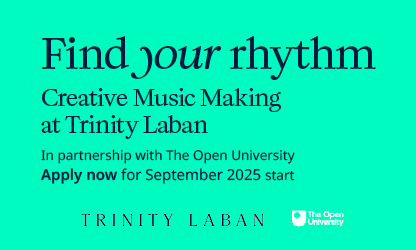Latest results from rehearsal infection reporting app
The most recent data about the spread of Covid infections at leisure-time music group rehearsals shows that 4% of reported infections involved more than two individuals.
The app, created by abcd (Association of British Choral Directors) and Making Music, is intended to help understand ongoing Covid risks, and what guidance to offer.
The app is totally anonymous and requires no personal data or identifiers for the group – it is purely about collecting big data on the real risks of leisure-time music group rehearsals (versus media reporting of single, perhaps rather unusual, events) and learning what mitigations are most or least effective, and what role complacency of individuals might play in making those mitigations less successful.
The latest data from the app show that since its launch in the summer, reports have been submitted from 4,504 rehearsals by choirs, wind or brass groups, and other instrumental groups.
'Are choirs perhaps observing more mitigations because of the research into aerosol transmission via singing and the widely reported press reports on choir infections early in the pandemic?'
198 infections have been reported following 4.4% of these rehearsals - an increase from 2.5% when data was analysed on 22 September. Interestingly, instrumental groups (without singers, wind and brass) are reporting the highest number of infections per rehearsal (5.6%). Are choirs perhaps observing more mitigations because of the research into aerosol transmission via singing and the widely reported press reports on choir infections early in the pandemic?
A reported infection means a participant arrived at rehearsals who might have been infectious. Only one infection being reported after that rehearsal means the participant did not transmit Covid to others despite in all likelihood being infectious – so whatever mitigations were in place, they would appear to have been effective.
That is why, if an infection is reported, the app generates a questionnaire to find out more detail about the circumstances of that rehearsal and the detail of mitigations in place, so that other groups can be informed about what works.
'But it may be a possibility that one transmitted it to the other at rehearsal, and so groups should carefully examine the specific set of circumstances surrounding their event in order to evaluate their current mitigations and whether they need reinforcing.'
The questionnaire found that 4% of the reported infections involved more than two individuals. That does not necessarily reflect a causal link – i.e. that one infectious person infected the other at rehearsal. They might both independently have arrived at rehearsals having caught the disease elsewhere, especially now case numbers are once again rising.
But it may be a possibility that one transmitted it to the other at rehearsal, and so groups should carefully examine the specific set of circumstances surrounding their event in order to evaluate their current mitigations and whether they need reinforcing.
But in addition, reporting anonymously via the app will enable abcd and Making Music to cascade learning to other groups and make singing and playing in leisure-time groups safer for everyone.
 Graph showing infection levels by group type
Graph showing infection levels by group type
Download WellRehearsed app
If you run a music group that is meeting in person, you can help us collect evidence by downloading the WellRehearsed app from the Apple Store for iPhone or Google Play for Android. All data is collected anonymously and only one person in a music group needs to have the app in order to submit reports on rehearsals.
Figures in this article are taken from the app at the time of writing (24 November)



